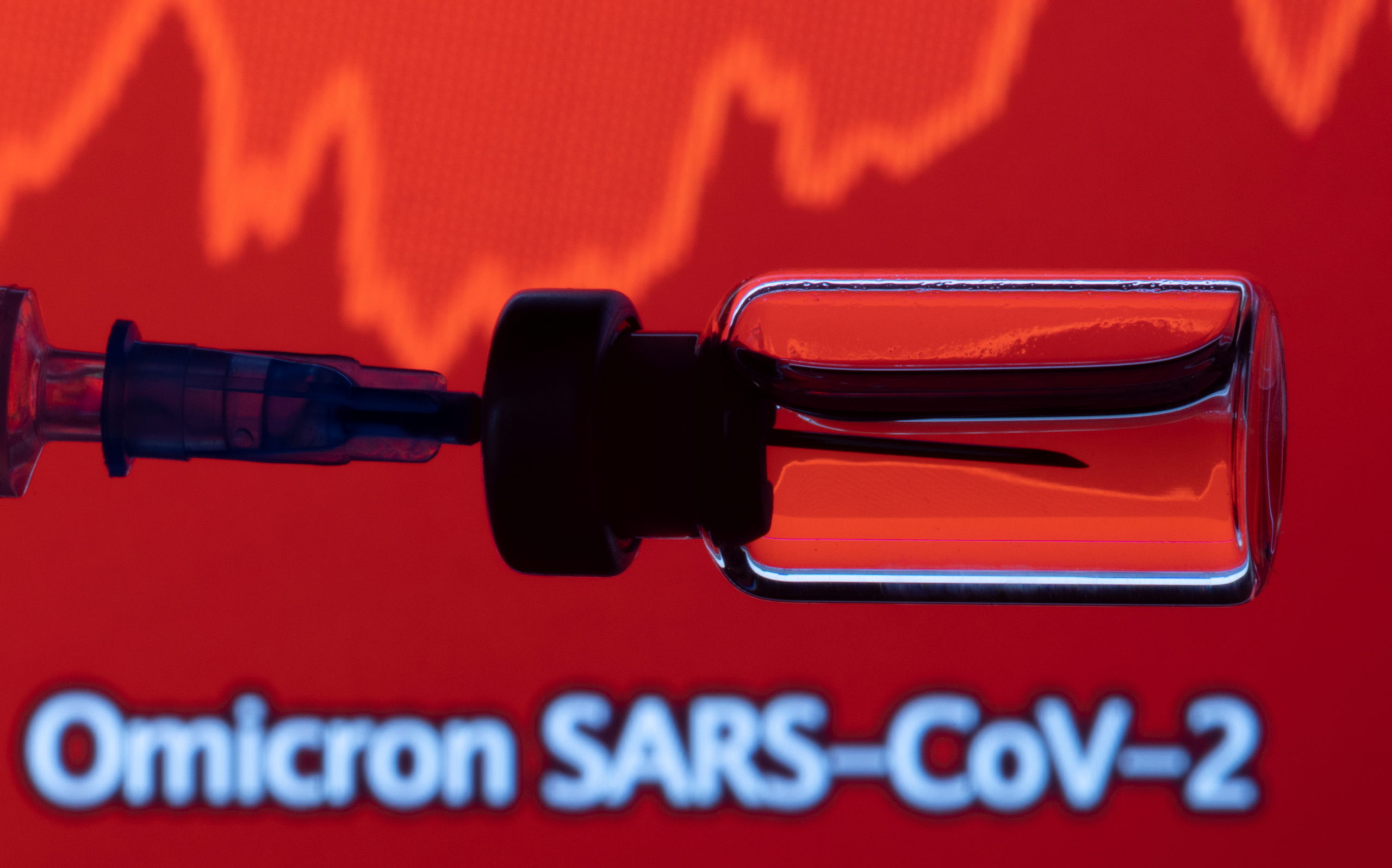
A vial and a syringe are seen in front of a displayed stock graph and words “Omicron SARS-CoV-2” in this illustration taken, November 27, 2021. REUTERS/Dado Ruvic/Illustration/file photo
MANILA, Philippines — The Omicron variant of COVID-19 may behave the same or even more than the highly transmissible Delta variant, an infectious disease expert said Wednesday.
“I don’t think it is weaker [than the Delta variant] because looking at the mutations, it’s really a concern among us experts at infectious diseases, and there’s a possibility that it can behave the same as Delta or even more,” Dr. Rontgene Solante, chief of the Adult Infectious Diseases and Tropical Medicine unit of San Lazaro Hospital, told ABS-CBN News Channel’s Headstart.
Health experts earlier said the Delta variant that was first detected in India is 60 percent more transmissible than the Alpha variant first reported in the United Kingdom. For instance, an Alpha-positive person can infect four to five persons, while a Delta-positive one can infect up to eight persons.
There is still limited information about the Omicron variant but according to Solante, its mutations indicate that it may also be highly transmissible and evade antibodies from vaccines.
“These are all possibilities because this is the first time we have seen a variant of concern wherein we have—to be exact—32 mutations in the spike protein, and these 32 mutations are really significant that it can be highly transmissible and can also affect our vaccines,” he said.
However, Solante noted that COVID-19 vaccines will not be totally ineffective against the new variant.
“It’s not totally ineffective because out of these 32 mutations, nine of these overlap with Alpha, Gamma and Delta, and we know that the vaccines we are using are still effective against the Delta or even the Gamma variants of concern,” he noted.
Solante added that most variants eventually “mutate to be weaker.”
“Most of the variants mutate to be weaker as the pandemic goes on. As the virus stays in our body, they become weaker. But there are vulnerable populations [where] this virus can stay longer, and I think this mutation was driven in a patient who is immunocompromised. It stays longer in the body and since it will adapt to survive in that particular body wherein the immune response is so weak, then that’s where the mutation comes in,” he explained.
South African scientists were the first to announce the discovery of the Omicron variant of concern, or the B.1.1.529, but it is currently unclear where the variant originated from.
Scientists said the variant has a “very unusual constellation” of mutations, which are concerning as they could help it evade the body’s immune response and make the virus more transmissible.
RELATED STORIES
What is known so far about new COVID-19 variant Omicron
Omicron variant entry to PH only ‘a matter of when,’ says Duque